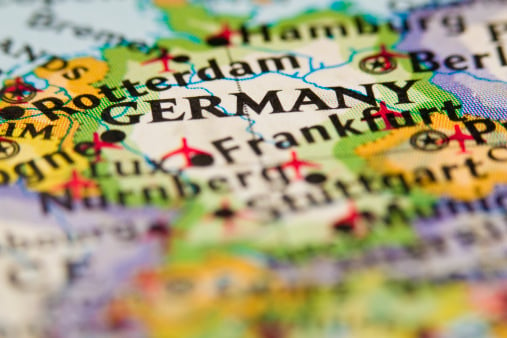Deutsche Bundesbank Abandons German Growth
December 7, 2012 by Douglas A. McIntyre
The agency sharply cut its forecasts for 2013:
[T]he Bundesbank’s semi-annual forecast expects that, following a rise of 0.7% in the current year (0.9% after adjustment for calendar effects), real gross domestic product (GDP) will grow by only 0.4% (0.5% after calendar adjustment) next year.
It is as though Bundesbank officials believe that Germany may have its own fiscal cliff. In the case of Europe’s largest economy, the threat is not new taxes or government spending cuts. Rather, the financial collapse of most of the rest of the region finally has dragged Germany’s production and consumer engine almost to a stop, and the problem could worsen next year.
The Bundesbank announcement constitutes another reason for Germans to suspect that the money that the government has put into bailouts would be better used at home. Stimulus packages have become the norm in large nations, which include China and Japan. The use of stimulus dollars even has entered the debate about the U.S. budget as the Obama administration argues that the country needs a $200 billion program to boost GDP through, among other things, job creation.
Germany should have avoided most of the dead economic weight that even has pulled France, the second largest country in the region by GDP, into recession. Internal consumer demand favored expansion in Germany, where unemployment stands at 5.4%. And the Germany export machine, driven by high-end manufactured goods and services, might have kept GDP well above 1%. The belief that those factors would buoy the German economy have disappeared, and not only because of the slowdown in Europe. China’s economy has sputtered some, and economic expansion of Germany’s trade partners, such as the United States and Japan, have moved into territory where they have risk.
Germans reviewing the Bundesbank projections may well believe that the best place for the government to spend money is at home, and that could affect the availability of capital to eurozone funds meant to rescue the region.
Douglas A. McIntyre
Sponsored: Find a Qualified Financial Advisor
Finding a qualified financial advisor doesn’t have to be hard. SmartAsset’s free tool matches you with up to 3 fiduciary financial advisors in your area in 5 minutes. Each advisor has been vetted by SmartAsset and is held to a fiduciary standard to act in your best interests. If you’re ready to be matched with local advisors that can help you achieve your financial goals, get started now.